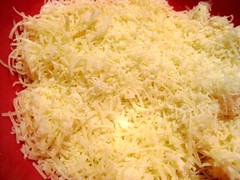There was some question as to what happened to Mario's restaurants in the book, and to judge by his website they are all doing just fine!
Karen cooked ricotta cheese ravioli with carmaliz
 ed onions.
ed onions.Ka
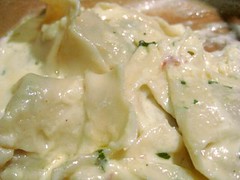 tie made cappellacci filled with sweet potatoes and parsley served with butter and cream sauce from The Classic Italian Cookbook by Marcella Hazan.
tie made cappellacci filled with sweet potatoes and parsley served with butter and cream sauce from The Classic Italian Cookbook by Marcella Hazan.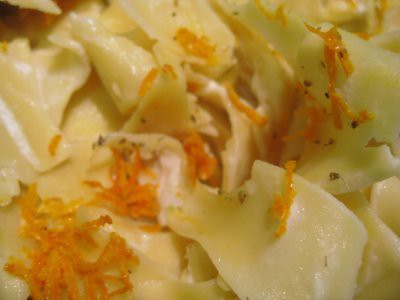
Katie S. made homemade pasta with fennel pollen, orange zest and goat cheese.
Dawn brought boc
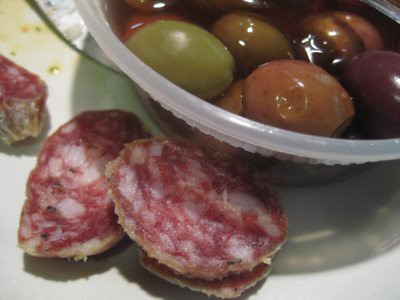 concini, coppa, cappielio, olives and
concini, coppa, cappielio, olives and fresh Italian bread from Borracchini's Bakery in Seattle.
fresh Italian bread from Borracchini's Bakery in Seattle.Heather brought bread and delicious Irish butter and olive and balsamic vinegar.
Julie brought P
 asta Peas & Pesto.
asta Peas & Pesto.Sheri brought Pasta e
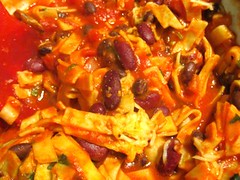 Fagioli - Mario's recipe from the Food Network.
Fagioli - Mario's recipe from the Food Network.Tanya brought marinaded vegetables, inclu
 ding mushrooms, white asparagus and artichoke hearts.
ding mushrooms, white asparagus and artichoke hearts.For show and tell, Julie shared her new herb scissors.
There was also discussion about clafo
 uti, a French cherry dessert that someone will have to make for next time!
uti, a French cherry dessert that someone will have to make for next time!Overall it was a very enjoyable discussion and meal!
Next month we are traveling to a different region of Italy for A Thousand Days in Venice. We are short on copies, so please return yours to the library as soon as you finish!
See you next month!
